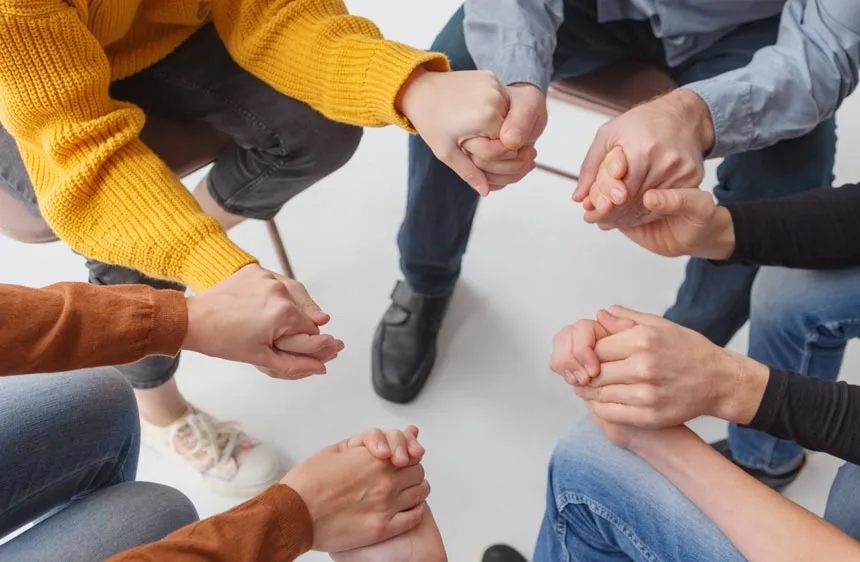Relapse Prevention Questions

Relapse prevention concerns can vary dramatically: from people asking, “will my loved one ever stop relapsing,” to “can relapse even be prevented?” The truth of the matter is that no two cases of substance abuse addiction are the same, and relapse can happen to anyone.
Some people get treatment one time and remain sober and recovered their entire life, while others struggle with rehab time and time again and it is not until they reach ‘rock bottom’ that they can begin their recovery.
Relapse prevention is a complicated subject, and throughout our guide, we will discuss facts, tips, and anecdotes to paint a better picture of relapse prevention, and how to avoid that first relapse.
What are Relapse Prevention Questions?
Among the many questions that come up around relapse and the use of addictive substances is: what is relapse prevention? According to “Relapse Prevention: Introduction and Overview of the Model” by William H George, Relapse Prevention (RP) is a self-control program designed to teach individuals who are trying to change their behavior how to anticipate and cope with the problem of relapse.
By anticipating issues that might arise, and forming a relapse prevention plan, individuals and their loved ones are better able to deal with the chronic nature of addiction.
Relapse refers to a breakdown or failure in a person’s attempt to change or modify any target behavior, whether related to drug or alcohol use, or a mental health issue. Substance abuse is generally held to be a chronic condition, subject to recurrence given a lack of a proper relapse prevention plan.
While our guide can and will help with planning, relapse prevention therapy itself may form the best avenue for those who have experienced chronic relapse in their lives
Experience True Healing
Our deeply-caring staff and the surrounding natural beauty offer an unparalleled healing experience.
What is a Relapse Prevention Plan?
Relapse prevention is especially helpful for individuals in long-term recovery because of the fact that they tend to have a hard time identifying the early stages and developing a healthy way of dealing with their issues in the first place (Holtzworth-Munroe-Urey, 1991).
Therefore, it helps to establish a baseline when looking at writing your own relapse prevention plan. How many times have you been to addiction treatment of some kind? What are the triggers that make you want to use drugs and alcohol?
These are some of the categories of questions you might ask when creating a relapse prevention plan and talking about your experiences and struggles with addiction. But let’s find out more about relapse itself, and then delve further into specific questions that can be helpful.
What are the Stages of Relapse?

For those facing alcohol and drug addiction, we often don’t realize a mental relapse can often precede the physical relapse that brings a substance into your body.
The actual moment of physical relapse does not happen in a vacuum or come out of nowhere. First, there are moments of emotional pain and a craving to return to alcohol or drug abuse. At this moment, instead of turning to support groups or loved ones, the future relapse gets a silent approval.
While it may be weeks or even months until that silent consent turns into actual drug and alcohol addiction, a mental health crisis, or both. Each time a craving for substance abuse is pushed down without being acknowledged, it can present a potential for future relapse.
Tips on Creating Your Relapse Prevention Plan
Based on the principle of social-learning theory, relapse prevention is a psychoeducational program that combines behavioral skill-training procedures with cognitive intervention techniques.
Because the relapse prevention therapy model combines both behavioral and cognitive components, your relapse prevention plan should draw on all you have learned in addiction recovery to help prevent a recurrence.
Even if you have not been a part of formal addiction treatment, you can still learn from support groups and your own addiction recovery experience what your triggers have been in the past.
Once these warning signs have been identified, you can better avoid the negative consequences that come with relapse by being able to rely on your support network and knowledge gained from hard-earned experience with drug and alcohol addiction.
Basically, the plan can take whatever form you like, but the goal is to change your likelihood of relapse through a better-informed support network as well as your own knowledge of what leads to positive outcomes for you, and what your warning signs are.
Whether a person stops the first time they receive relapse prevention treatment or require many different episodes of treatment, it makes no difference as long as they are continuing to try to achieve long-term sobriety.
Proper Preparation in a Relapse Prevention Plan

Cognitive reframing procedures are designed to help you come up with alternative thoughts and ways of looking at your mental health and any cravings to indulge in old habits. Your thoughts can be educated concerning the nature of substance use disorders, and you can introduce coping imagery to deal with urges and early warning signs.
One effective method is even called ‘urge surfing,’ and it can help to practice this with your support group or recovery circle, whoever it may be. Simply watch the thoughts about using drugs or alcohol abuse pass through your head, observing that they are just thoughts, nothing more.
Talk about the thoughts and develop coping strategies with your support system, so that you have healthy boundaries and can better avoid relapse next time they come around!
Experience True Healing
Our deeply-caring staff and the surrounding natural beauty offer an unparalleled healing experience.
The Importance of Honesty in Relapse Prevention
These sorts of exercises can help to reframe reactions to the initial event. Finally, lifestyle intervention strategies taught at Exclusive Hawaii Rehab and in other top holistic addiction treatment programs (such as relaxation methods and yoga therapy) can help immensely.
Such efforts are designed to strengthen a client’s coping tools and will reduce the frequency and intensity of urges for substances.
Most traditional treatment programs for addictive behaviors tend to ignore the relapse issue altogether. There seems to be a general assumption in such programs that to even discussing the topic of relapse is equivalent to giving clients permission to relapse.
The rationale that we present to our clients at Exclusive Hawaii is a simple one. Relapse prevention planning is just a particular form of a failsafe, and an important one at that.
Our society already has numerous procedures that require us to prepare for the possibility (no matter how remote) that various problematic and dangerous situations may arise. On a personal level, this is even more important!
A Few Questions to ask During Relapse Prevention Planning
- Am I being completely honest about my triggers and cravings?
- Would SMART Recovery or other 12-step alternatives help with my planning?
- Can I identify other ways of support for myself when I am struggling?
- How can I better practice self-care?
- Is depression or mental illness playing a detrimental role in my recovery?
- What are my challenges each day and where am I struggling the most?
This is by no means an exhaustive list of ways to look at and change your thought patterns. But it can help you to truly begin recovery planning in a proactive way, and this alone is a powerful barrier to relapse.
Focusing on your personal growth and ways to avoid what you know are high-risk situations are not the only elements of relapse prevention plans. But they are key considerations in this and any form of practicing self-care.
Is Relapse Common During Addiction Treatment?

Not only is relapse common during treatment at facilities such as rehab, but it is also common throughout addiction recovery itself. Even people with ten or twenty years of complete abstinence from substance use find themselves facing the urge to drink or ‘drug’ again. Relapse does happen, but it is equally easy to arm ourselves against it.
No matter your support system or substance of choice, the thought of using again will enter your life at some point, this is the nature of addiction. The nature of treatment and proper relapse prevention planning is to take the high-risk thoughts and situations more manageable to deal with.
By leaning on your support network, whether others are in recovery or a loved one, or both, you can and will make it through these challenges and cravings.
Holistic Alcohol and Drug Rehab for Residents of Houstonhttps://t.co/HCsgrtNcXI
— Exclusive Hawaii Rehab (@hawaii_rehab) February 28, 2022
Develop Relapse Prevention Expertise in Hawaiian Paradise
Hawaii is a wonderful place to learn about relapse prevention due to its nearly mystical natural beauty and wonderfully comfortable and laid-back vibes. For many of our clients, these are contributing factors as to why receiving holistic treatment in Hawaii is life-changing in ways that other treatment centers cannot match.
From our focus on whole-body wellness to our holistic methods and expert staff, the Exclusive Hawaii Rehab can help you achieve both sobriety and a solid relapse prevention plan to take with you into the outside world.
For more information on relapse prevention or to inquire about the availability of treatment at our facilities on the Big Island, reach out now to our warm and welcoming Intake Coordination team. We are ready and waiting to help you embrace your recovery in amazing ways, today!
Experience True Healing
Our deeply-caring staff and the surrounding natural beauty offer an unparalleled healing experience.